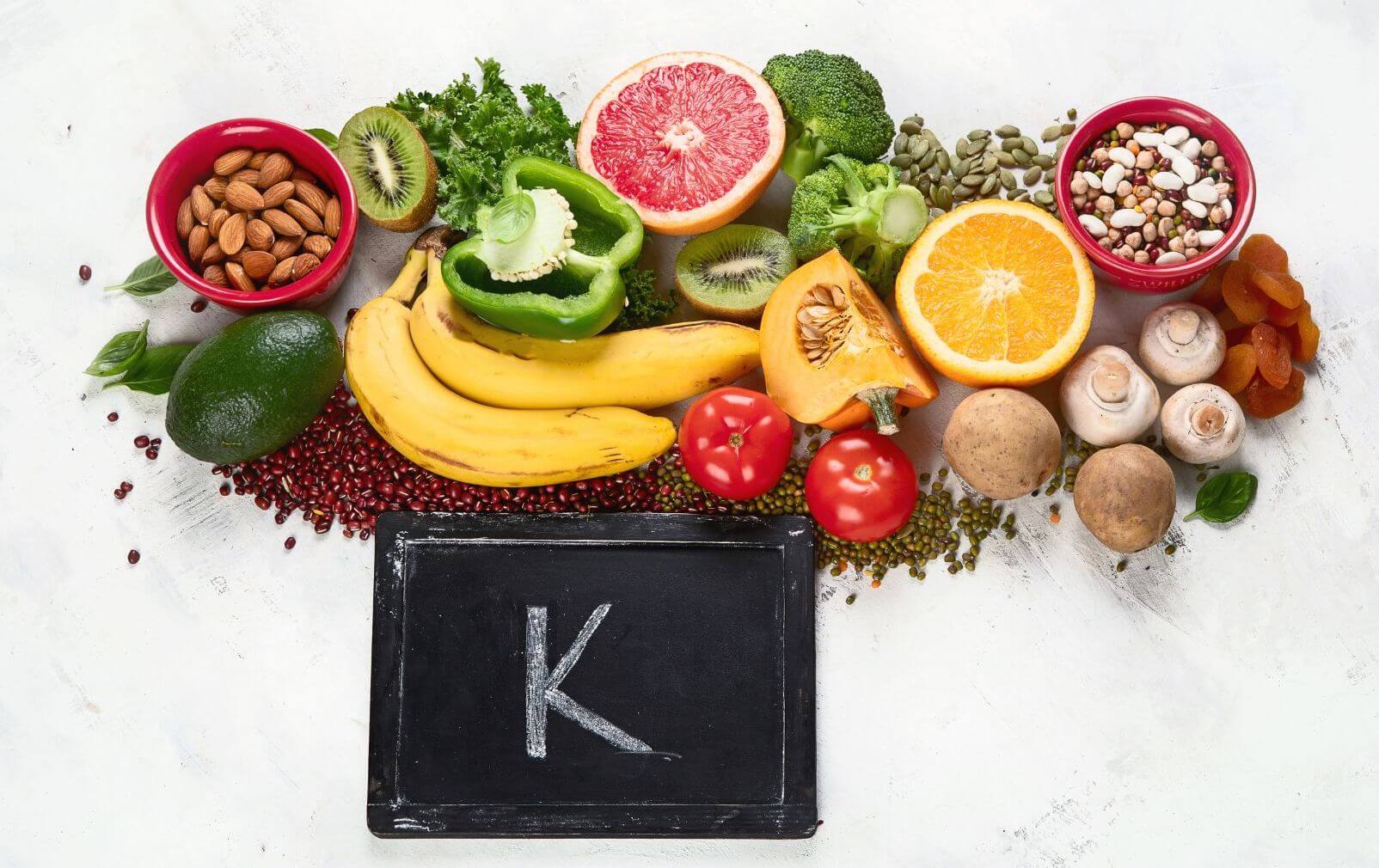
You may have heard that you need to cut back on potassium because you have kidney disease. That’s probably why you are looking for a high potassium food list.
The truth is that not everybody needs to cut back on potassium just because they have kidney disease. In fact, it is one of the biggest perpetuated myths in the kidney world. However, maybe your potassium was recently high on your blood work and you’re needing to figure out how to bring it down. If so, then let’s dig into the basics of potassium.
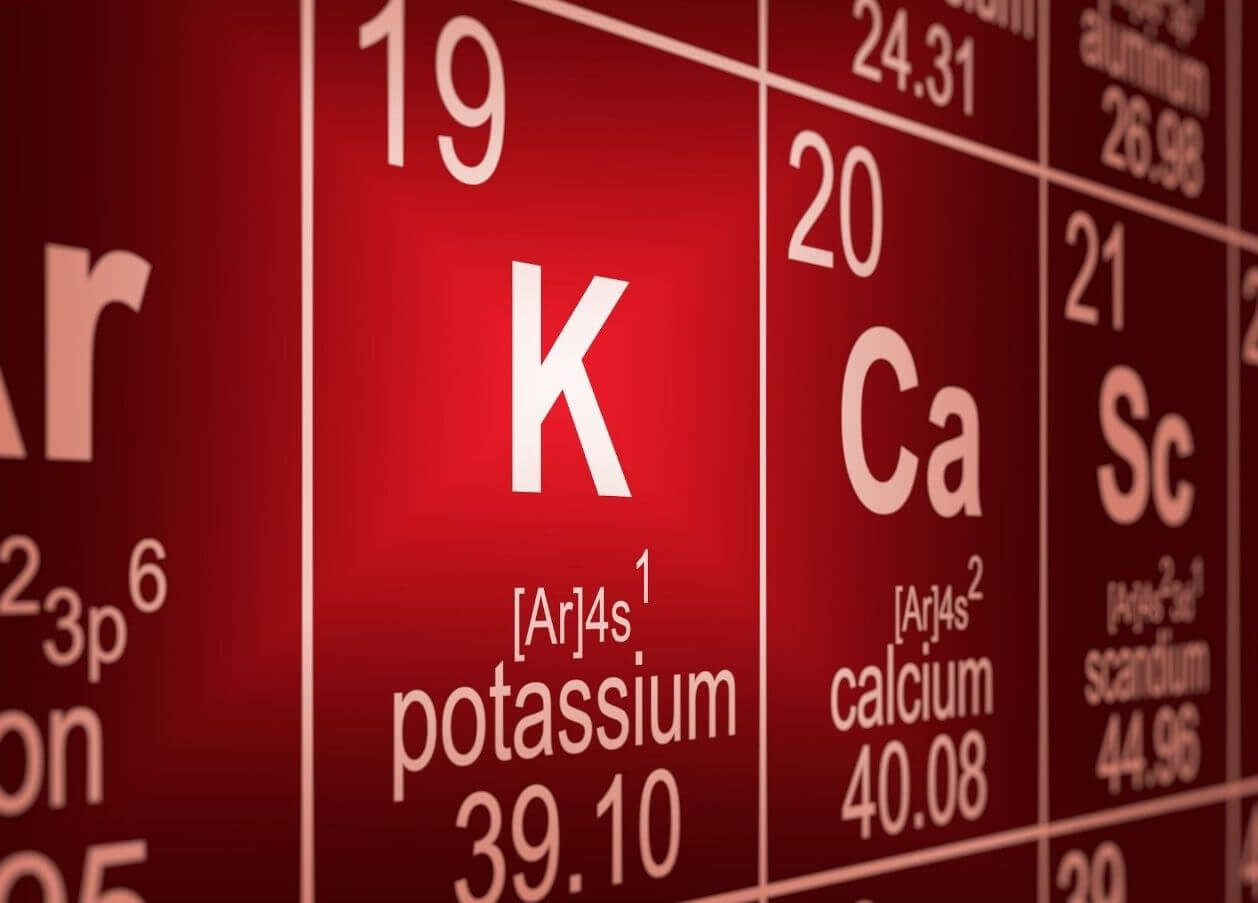
What is potassium?
Potassium is an essential mineral and electrolyte involved in many bodily functions, including:
- Muscle contractions
- Nerve transmissions
- Blood pressure control
Potassium and kidney disease
Kidneys play a crucial role in regulating potassium levels in the body. When kidney function is compromised, the kidneys may struggle to remove excess potassium from the blood. As a result, there may be a buildup of potassium in the blood.
High potassium doesn’t actually hurt your kidneys, but for the individuals who have higher levels it can cause some problems. High levels of potassium may lead to complications such as irregular heartbeat, muscle weakness, and even emergency hospitalizations.
Good news!
You CAN manage high potassium through food. That is, by choosing mainly low potassium foods and reducing intake of high potassium foods.
Please note: potassium restriction is NOT for everybody. Many people with kidney disease may actually benefit from more potassium intake. Unsure if you should limit your potassium? Book a call with your KNI dietitian and clarify your nutrition strategies today!
Non-dietary causes of high potassium
Contrary to common beliefs, your dietary potassium intake is NOT the only cause of high potassium levels. Beyond food intake, there are many other causes of high potassium in the blood, including:
- Some medications
- Metabolic acidosis
- High blood glucose
- Hydration status
- Gut problems including vomiting, diarrhea, or bleeding
- Constipation
When addressing high potassium, it is crucial to consider all these potential causes in addition to restricting potassium from your food intake.
Please make sure to always work with your healthcare team to determine the best approach to address your potassium levels.
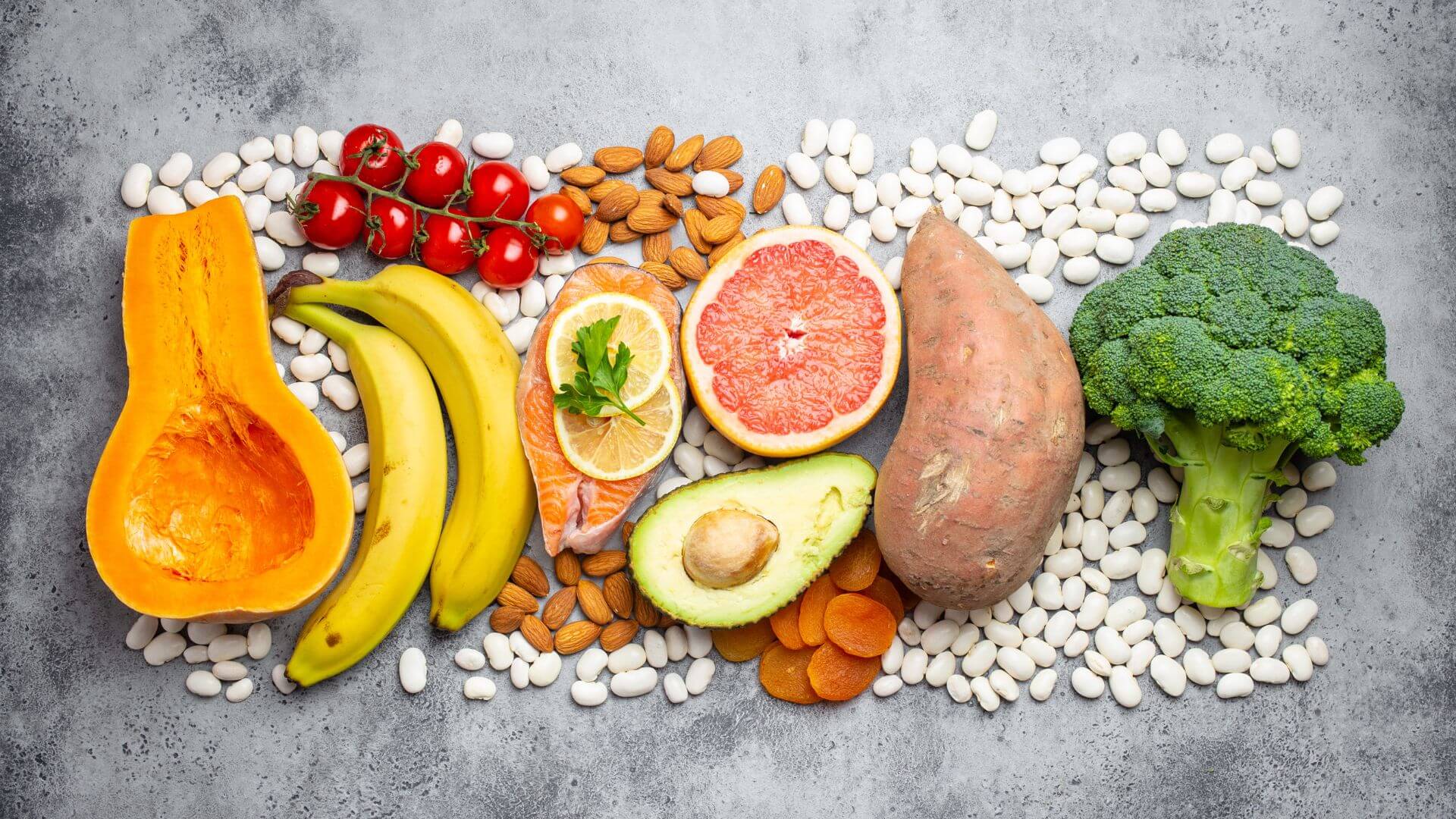
High potassium foods to watch for
Certain foods are naturally high in potassium and should be limited or consumed in moderation by individuals with kidney disease with high serum potassium. These include:
- Processed meats (ham, bacon, sausage)
- Dairy products (milk, yogurt, cheese)
- Beans and legumes (kidney beans, lentils)
- Nuts and seeds
- Bananas
- Oranges and orange juice
- Potatoes (including sweet potatoes)
- Tomatoes and tomato products (sauces, paste)
- Avocado
- Cooked spinach and some leafy greens
If you have been advised to reduce your potassium intake, KNI has compiled a high potassium food list for kidney disease that you can keep as a reference. Download KNI’s High Potassium Food List PDF for Kidney Disease below!
KNI Kidney TIP: Avoid in particular processed foods with potassium additives. Added chemical potassium is more easily absorbed compared to naturally occurring potassium from plants or animal foods.
Not sure what you CAN eat now? Check out our Low Potassium Food List for Kidney Health PDF and blog post too!
As always, we recommend working with a dietitian to personalize YOUR nutrition strategies according to your individual needs and preferences. Book a free discovery call with a KNI dietitian today!
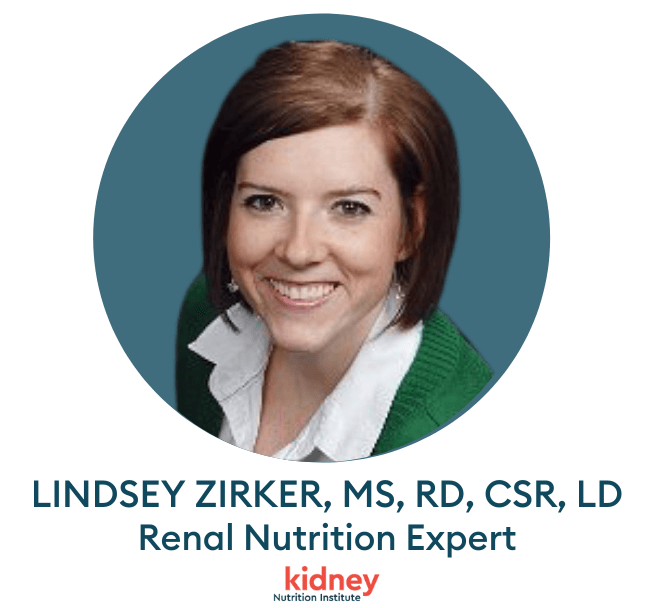
Work With Us
Our proprietary Kidney Health Method is the framework that we use with our patients to see HUGE results! We can do the same for you. To start feeling better NOW, book an appointment with one of our renal dietitians!
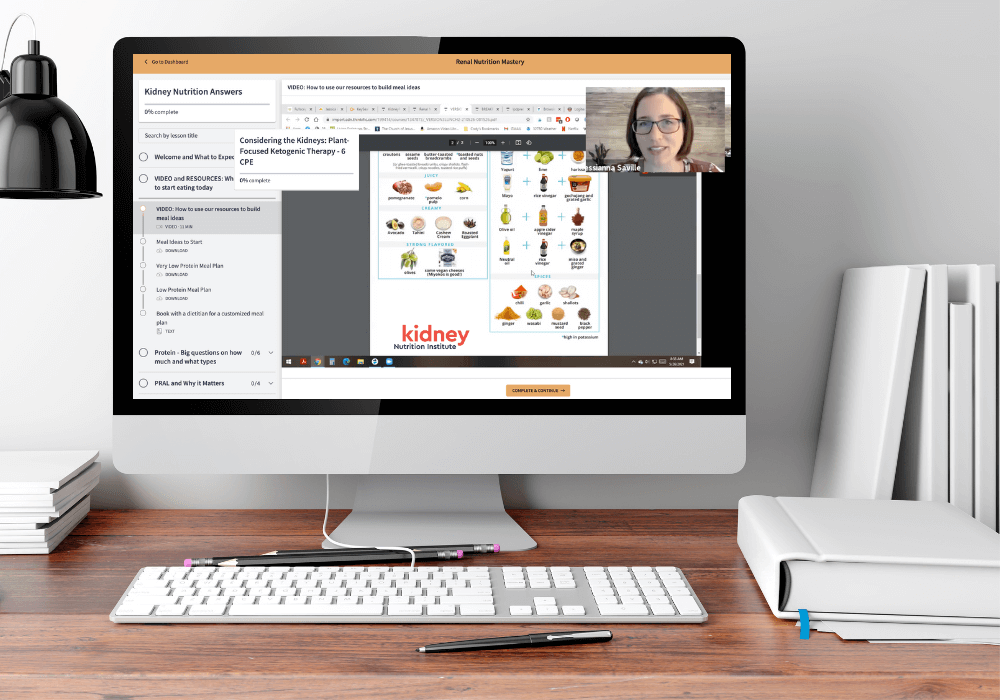
Kidney Nutrition Answers Course
Need a big-picture explanation of kidney nutrition? We’ve got just the thing! Our Kidney Nutrition Answers course will walk you through the basic nutrition principles we use to design nutrition plans that GET RESULTS!

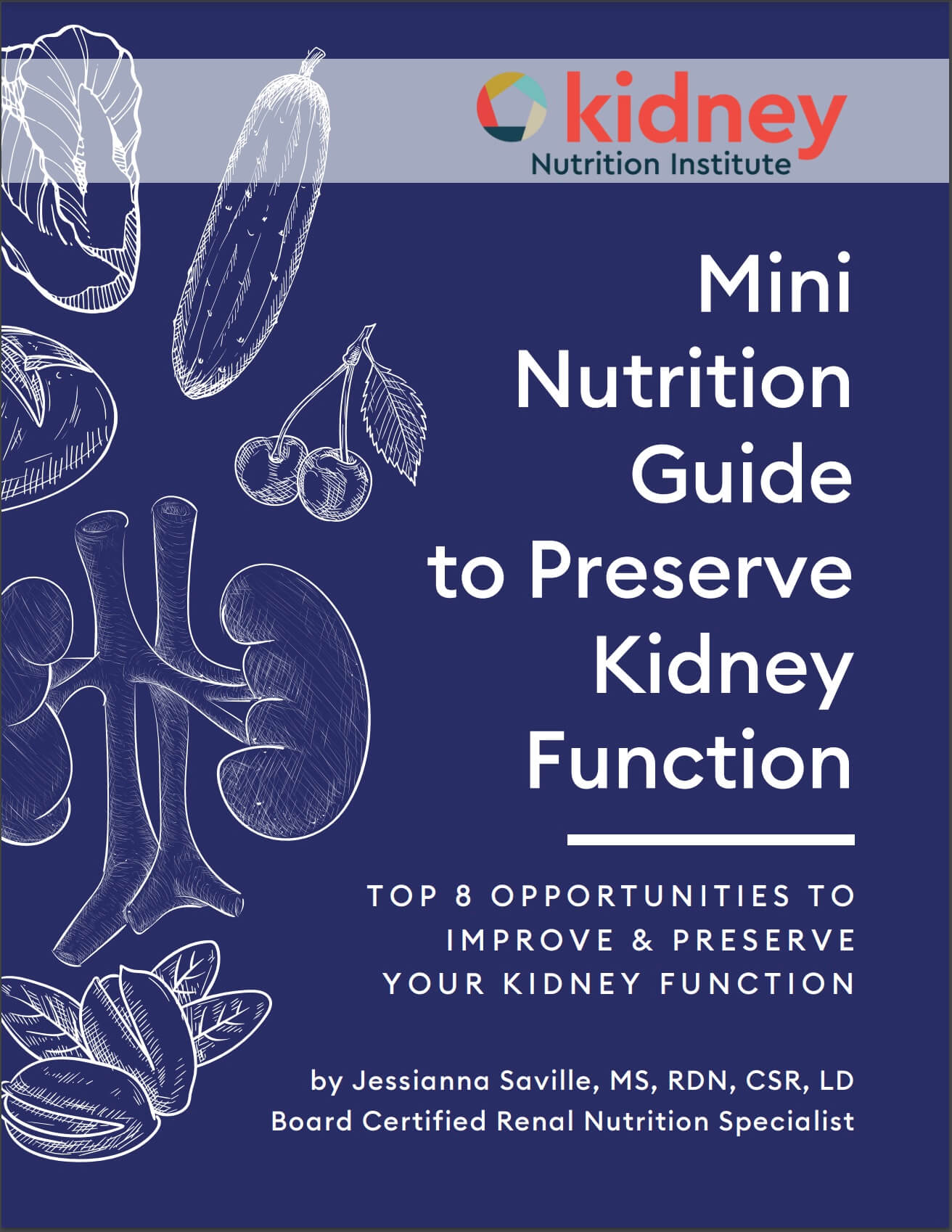
Pingback: Renal Diet Summer Grilling! Honey-Garlic Low Sodium Marinated Kebabs - Kidney RD
i’m in stage 3 of kidney failure,and i am reading your article I plan on trying this drug. thank you for this information.
I appreciate your info.
I help with Sunday dinner for my family.
Thank you
Joanne ????